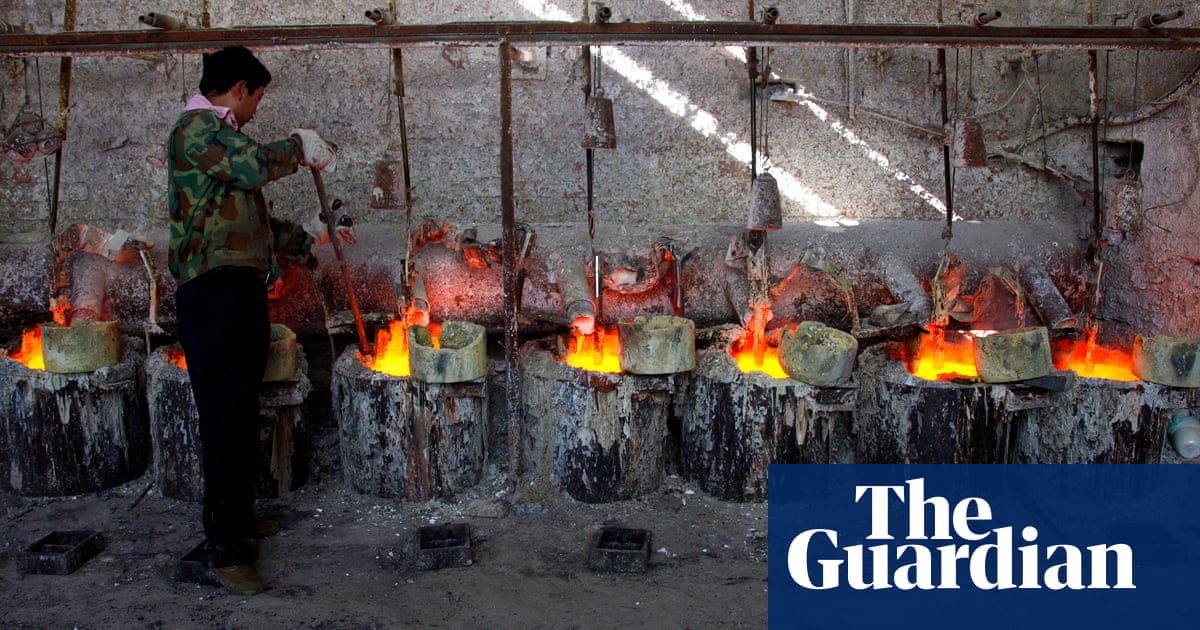Dow Jones plunges after Beijing signals preparedness to limit exports of rare-earth components

Financial markets worldwide have actually sold greatly after Beijing signified a preparedness to strike back at Washington in their intensifying trade war by limiting exports of rare-earth aspects .
Wall Street taped high losses on Wednesday as the Dow Jones plunged to the most affordable level in practically 4 months, losing about 221 indicate trade at 25,126. The S&P 500 index likewise was up to a two-month low, moving by 19 indicate 2,783.
Against a background of installing issue over the long-running trade disagreement in between the United States and China , which stands to choke international development, Beijing indicated that exports of rare-earth components to the United States might be reduced.
Chinese media reports, consisting of individuals’s Daily, the flagship paper of the Communist celebration, raised the possibility of the crackdown, which would stand to strike American business associated with electronic devices, automobile production and defence.
Analysts stated China mistreats 80% of United States imports of unusual earths which modern producers might see their earnings paralyzed by the steps.
Edward Moya, a senior market expert at the monetary trading platform Oanda, stated: “It appears the monetary markets are encouraged the trade war is not going to yield anything appealing whenever quickly, and brand-new threats are emerging. If China does follow through on its uncommon export restriction, the result would paralyze modern production.”
As the ramifications of the most recent advancement in the trade war resounded worldwide on Wednesday, stock exchange likewise fell greatly in Europe and Asia. In London, the FTSE 100 fell by more than 100 indicate trade at about 7,168, while stock exchange in Germany, Italy and France likewise dropped. Japan’s Topix index of leading business shares shut down by 0.9% and Hong Kong’s Hang Seng index stopped by 0.6%.
Pascal Blanqu, primary financial investment officer at Amundi, Europe’s biggest fund supervisor with EUR1.45 tn of properties under management, stated there were still hopes that an offer might be reached in between the United States and China to avoid a more crisis.” [] the hazard of a trade war has actually returned, shaking financier self-confidence and awakening markets from complacency,” he stated.
The veiled risk released by China consisted of a commentary in individuals’s Daily that alerted Donald Trump not to undervalue the nation, that included language packed with historic significance.
The paper utilized the expression “ Don’t state we didn’t alert you! ” in its editorial, in an advancement that observers stated was unusual and had actually been utilized by the paper in the run-up to the 1962 war with India and the war with Vietnam in 1979.
The escalation follows the Trump administration raised the stakes in the long-running conflict by increasing United States tariffs on $200bn of Chinese products to 25% from 10% previously this month. China is preparing to strike back, with $60bn of tariffs on United States imports due to work this weekend. Since its exports to the United States exceed imports, #peeee
Beijing has a drawback in the trade war. According to the United States Census Bureau, the United States imported $539.5 bn of imports from China in 2015, while exporting $120.3 bn. While the White House has higher alternatives for taxing imports, Beijing has alternative levers, consisting of the sale of rare-earth minerals trusted by United States companies.
Economists at the consultancy Oxford Economics stated the United States tariffs would cut the nation’s financial output by 0.3%, or $62bn, in 2020 relative to a scenario where Trump had actually not ratcheted them up, while China stands to lose about 0.8% from GDP development over the very same duration.
It likewise analyzed the debate over who pays the expense of United States tariffs, concluding that “United States customers are bearing the majority of the concern up until now”. Trump has actually formerly said that China is paying the tariffs, although the border taxes are paid by United States importers of Chinese items, increasing their expense.


Recent Comments